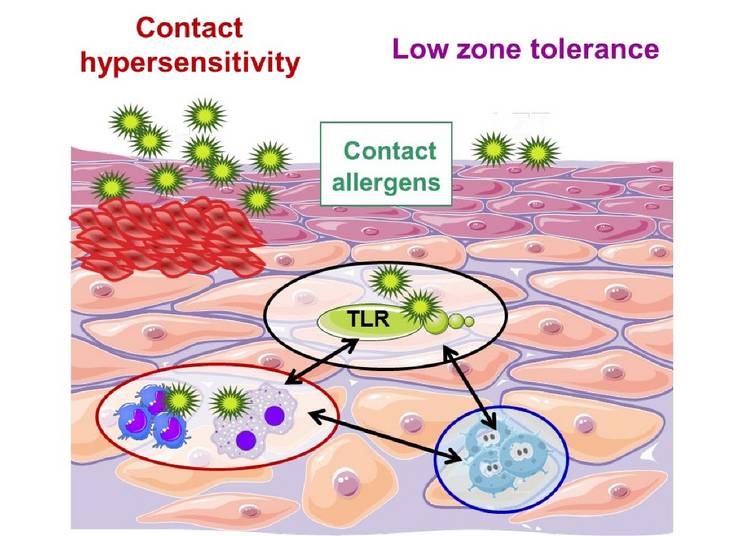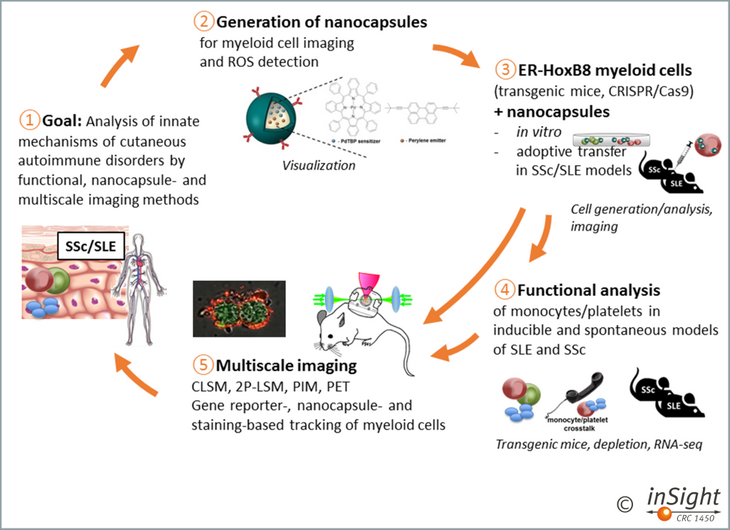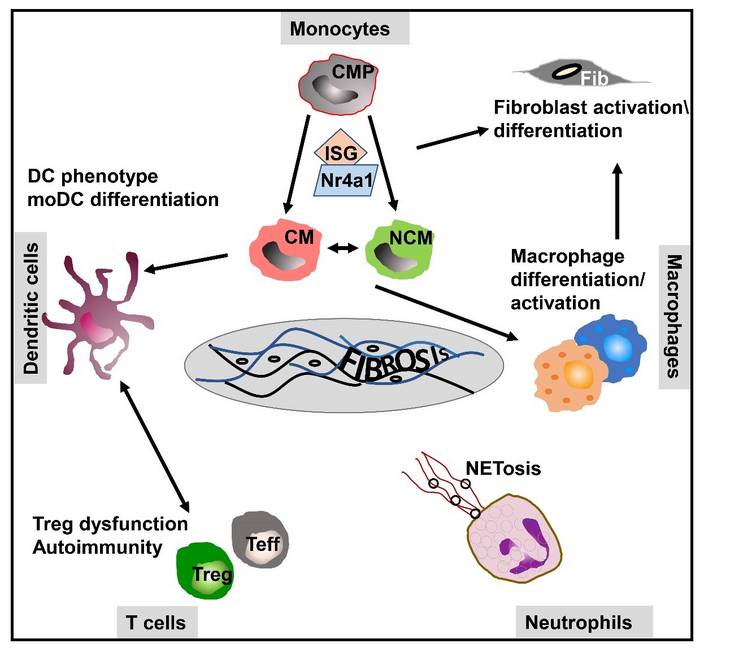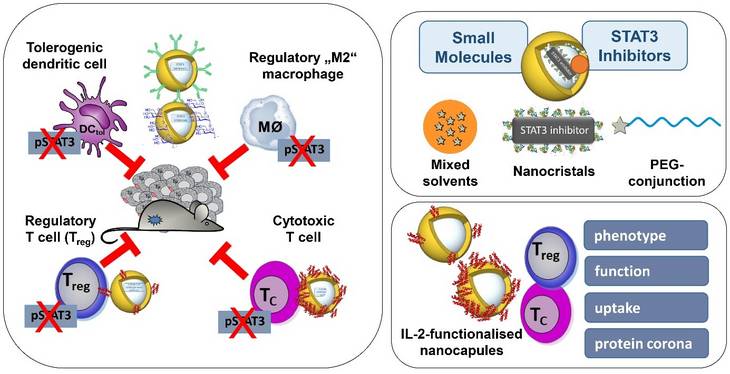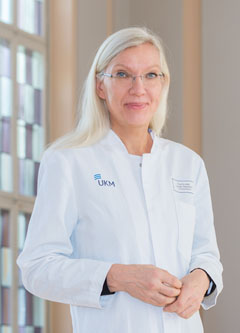Our group focusses on the analyses of molecular mechanisms of skin immunology and immunological tolerance to develop innovative therapeutic strategies for allergic and autoimmune disease and cancer. Deep knowledge in tolerance processes and their induction and modulation may result in improved treatments for patients suffering from inflammatory cutaneous diseases and tumours. Our lab is embedded in the Cells in Motion Interfaculty Center of the Medical Faculty of Münster (link) and exhibits close cooperations with several institutes and departments at the University Medical Center Münster and other faculties of sciences of the Universität Münster.
The incidence of skin diseases is continuously rising in the western countries. An estimated 15-20% of the general population suffers from an allergic contact dermatitis (ACD) leading to distress of the affected patients and high socio-economical costs. Despite progress in elucidating the pathogenesis of this T cell-mediated allergic skin disease, efforts to target and develop effective and specific therapeutic strategies are still missing. Therefore, we have focused on the analysis of allergen (hapten)-specific immune responses in two different models: the contact hypersensitivity reaction (CHS), resembling the ACD in humans, and low zone tolerance (LZT), mimicking a physiologic mechanism for prevention of ACD development. The aim of this project is the analysis of mechanisms of the innate immune system and their interactions with adaptive immune responses in hapten-specific T cell-mediated skin reactions of LZT and CHS. We focus on the molecular (PRR), cellular (myeloid cells) and on microbiome-induced mechanisms for the development of skin inflammation. The identification of key elements of the innate immune system may result in the development of innovative therapeutic approaches for cutaneous diseases.
This project is funded by the German Research Foundation (DFG) with the CRC1009 “Breaking Barriers” https://www.medizin.uni-muenster.de/sfb-1009.




